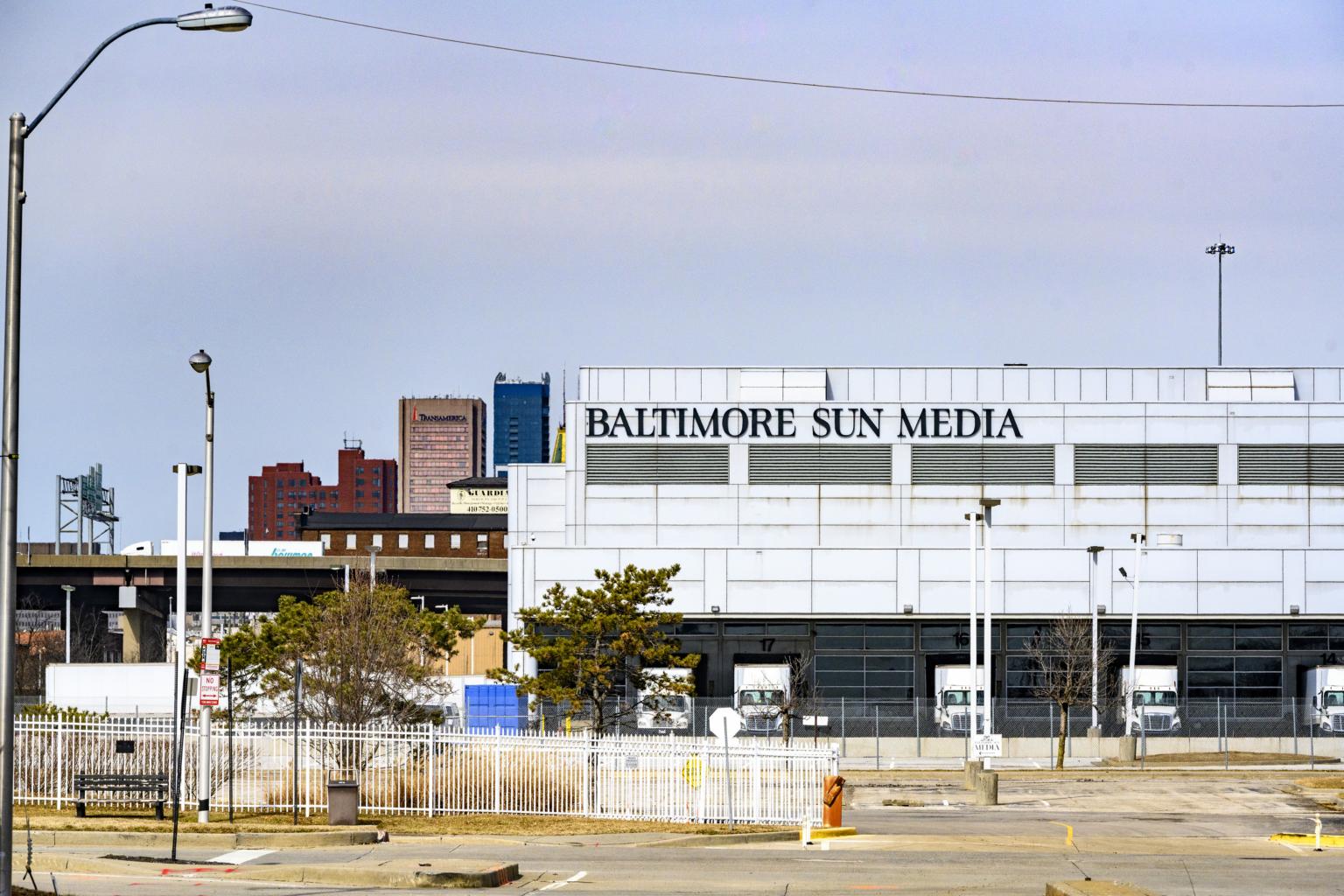US billionaires becoming newspaper owners
Sign up now: Get ST's newsletters delivered to your inbox

The Baltimore Sun Port Covington Campus in Baltimore, on Feb 17, 2021. The Baltimore Sun is one of the papers owned by Tribune Publishing, the company Hansjorg Wyss and Stewart Bainum Jr hope to acquire.
PHOTO: NYTIMES
(NYTIMES) - Billionaires in the US have had a pretty good pandemic. There are more of them than there were a year ago, even as the health crisis has exacerbated inequality.
One arena in which the billionaires can still win plaudits as civic-minded saviours is buying the metropolitan daily newspaper.
The latest example comes in the form of a US$680 million (S$907 million) bid by Mr Hansjorg Wyss, a little-known Swiss billionaire, and Mr Stewart Bainum Jr, a Maryland hotel magnate, for Tribune Publishing and its roster of storied broadsheets and tabloids such as the Chicago Tribune, the Daily News and The Baltimore Sun.
Should they succeed in snatching Tribune away from Alden Global Capital, whose bid for the company had already won the backing of Tribune's board, the purchase will represent the latest example of a more than decade-long quest by some of America's ultra-wealthy to prop up a crumbling pillar of democracy.
If there was a signal year in this development, it came in 2013, when Amazon founder Jeff Bezos bought The Washington Post and the Red Sox's owner John Henry bought The Boston Globe.
Mr Bezos and Mr Marty Baron, the recently retired editor of the Post, famously led a revival of the paper to its former glory. And after a somewhat rockier start, experts said that Mr Henry and his wife Linda Pizzuti Henry, CEO of Boston Globe Media Partners, have gone a long way towards restoring that paper as well.
On the west coast is Dr Patrick Soon-Shiong, the physician and billionaire who bought the Los Angeles Times in 2018.
"There's not a doubt in my mind that the Los Angeles Times is in a better place today than if Tribune had held onto it these last three years or so," said Mr Norman Pearlstine, who was executive editor for two years after Dr Soon-Shiong's purchase and still serves as a senior adviser.
From Utah to Minnesota and from Long Island to the Berkshires, local grandees have decided that a newspaper is an essential part of the civic fabric. Their track records as owners are somewhat mixed, but mixed in this case is better than the alternative.
Researchers at the University of North Carolina at Chapel Hill released a report last year showing that in the previous 15 years, more than a quarter of American newspapers had disappeared, leaving behind what they called "news deserts".
The 2020 report was an update of a similar one from 2018, but just in those two years another 300 newspapers died, taking 6,000 journalism jobs with them.
"I don't think anybody in the news business even has rose-coloured glasses anymore," said Mr Tom Rosenstiel, executive director of the American Press Institute, a non-profit journalism advocacy group. "They took them off a few years ago, and they don't know where they are."
"The advantage of a local owner who cares about the community is that they in theory can give you runway and also say, 'Operate at break-even on a cash-flow basis, and you're good,' " he added.
Hedge funds, by contrast, have expected as much as 20 per cent of revenue a year from their properties, which can often be achieved only by stripping newspapers of reporters and editors for short-term gain.
Alden has made deep cuts at many of its MediaNews Group publications, including The Denver Post and San Jose Mercury News. Alden argues that it is rescuing papers that might otherwise have gone out of business in the past two decades.
And a billionaire buyer is far from a panacea for the industry's ills. "It's not just, go find yourself a rich guy. It's the right rich person. There are lots of people with lots of money. A lot of them shouldn't run newspaper companies," said Ms Ann Marie Lipinski, curator of the Nieman Foundation for Journalism at Harvard and former editor of the Chicago Tribune.
"Sam Zell is Exhibit A. So be careful whom you ask," she said. Mr Zell, a real estate maverick and billionaire whose nickname is "the grave dancer", took Tribune Publishing private in a leveraged buyout in 2007. The company filed for bankruptcy the next year. His brief tenure helped set in motion the events leading to the Alden Capital bid.
Other rescuers have come and gone. There was a time when Mr Warren Buffett looked like a potential saviour for newspapers, investing in them through his company Berkshire Hathaway. He has since beat a retreat from the industry.
"The great fear of every billionaire is that by owning a newspaper they will become a millionaire," said Mr Rosenstiel.
After cable television entrepreneur H. F. (Gerry) Lenfest bought The Philadelphia Inquirer, he set up a hybrid structure. The paper is run as a for-profit, public benefit corporation, but belongs to a non-profit called the Lenfest Institute. The complex structure is meant to maintain editorial independence and maximum flexibility to run as a business while also encouraging philanthropic support.
"I think philosophically, we've long accepted that we can have no museums or opera houses without philanthropic support," said Ms Lipinski. "I think journalism deserves the same consideration."


